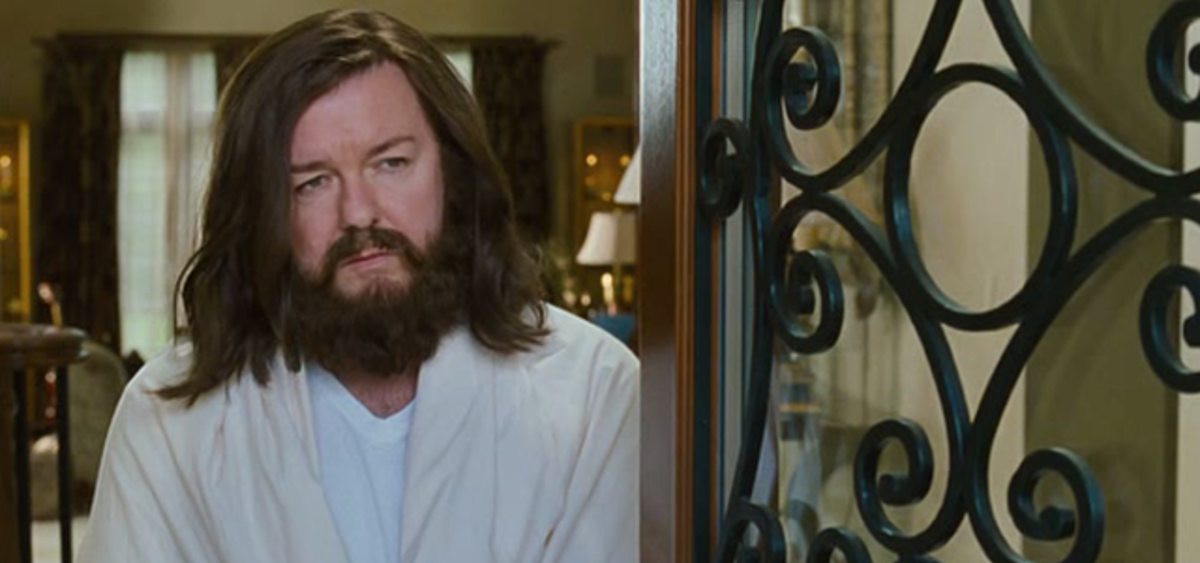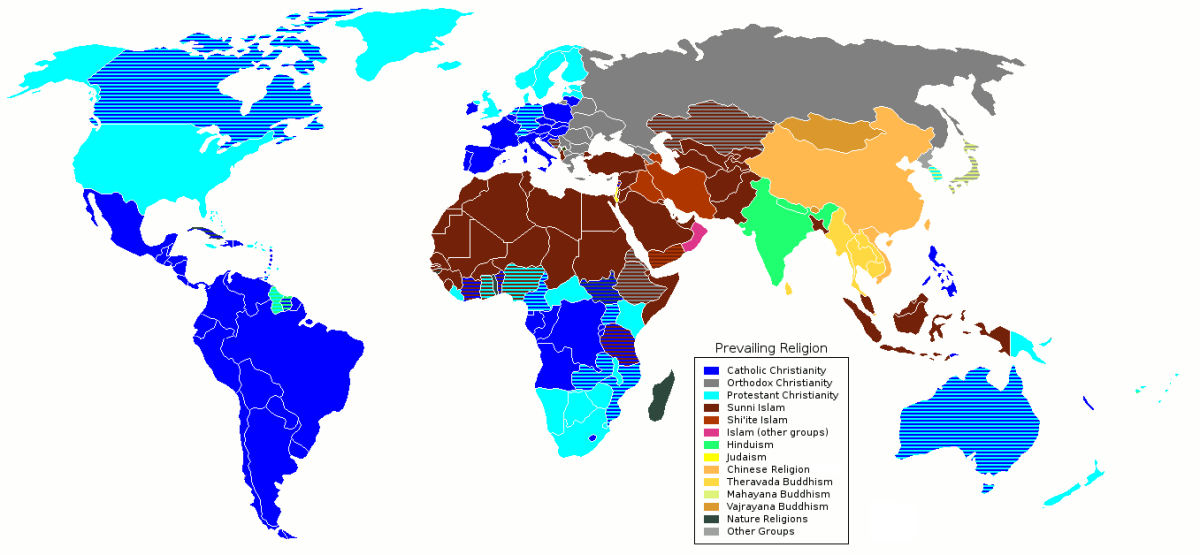Why are atheists so obnoxious?

What is an atheist and why are they so obnoxious?
To understand we have to understand what atheism is. Atheism means “without theism.” I’ll explain that in detail a little later. There have always been atheists, but until the last century we were not allowed to officially exist. Heretics were not looked upon kindly by anyone. Consequently we were numbered as very few. Those that were didn’t dare admit they were atheists.
But with the decline of the Catholic Church due to Luther and others, agnosticism became somewhat tolerated, though it was still not advertized by many. Deism took root as well, and the new America, being a nation of many cultures, decided that it was best to separate church and state. Most other countries had an official religion.
This meant that religion became a personal thing, not talked about at the dinner table or in polite society. Everyone was happy, and atheists were free to be who they were. There were no militant atheists in those days, and most Christians understood that we could be moral people even without a god in our lives.
There were revolutions elsewhere, where the church took the side of the state, (like in France) and as a result secular states become the norm. At the same time, through the advent of new science, materialism was born. Work was quickly begun on stories like Frankenstein, Jeckle and Hyde, Dorian Gray, etc; all showing what we needed to fear from Materialism if it continued. Now atheists were no longer just non-believers in the eyes of the public, they had a belief system, (or so it was thought) and everything was philosophically on the table including morality. Scary stuff for believers. But Materialism was in its infancy, had a lot to learn and discover, and made a lot of mistakes.
Still, as that settled down people began to get back to normal relations and religion was a personal thing again. Live and let live. Atheism was here to stay but not taken particularly seriously.
But then there was Darwinism. Evolution created such a backlash in the US it created what is now fundamentalism and a new militant theism. In the US atheists lost jobs, were treated badly again, and they went back into hiding in some parts of the country.
But the damage had been done. Atheism was here to stay, and there has been a war raging between the new militant theists and the new militant atheists for years now. The internet has made it much much worse because now we can all communicate so much easier with everyone around the world. But at the same time, in forums and clubs the debates can rage on without the danger of anyone actually getting up and hitting someone in the mouth, which would happen in face to face confrontations. So now we can both explain ourselves at leisure and in all honesty. In the real world, most people still do not openly debate religion and atheism, and thereby avoid bloodshed.
So for the moderate Christian atheism has become obnoxious. “Why don’t atheists understand?” is their cry. In short, moderate Christians and atheists alike are collateral damage.
It is mostly to those moderate Christians I address this message, and offer my apology for being obnoxious. But it is inevitable
There is a lot of misinformation about atheism. So let’s start there. The simple fact that Christians do not seem to understand what the word atheism means is probably one of the most frustrating problems for an atheist in any debate. Christians often tell us atheism is just a religion or belief system like any other. But that is utterly false. Atheism means one thing and one thing only. It means a person lacks belief that a god exists. Christians have that belief, atheists lack it. It means nothing more than that. Atheism is not a belief that there is no god, it is lack of belief that there is one. It is perhaps a subtle difference, but an important one.
Just as Christians lack belief in all other gods but one, atheist also lack belief concerning that one. We only lack belief about one less god than you do. A-theism = lack of theism. Not belief in the lack of a god. There is no faith involved.
Atheism tells you nothing about what an atheist may or may not believe. Some atheists may say with seeming absolute certainty that there is no god. But most of us know that is an untenable position. No can prove there is no god possible, just as no one can prove there is one with any certainty. They can only logically prove certain aspects or attributes of the god in question are impossible. That never negates the possibility of a god without those attributes. So the logical, and by far the strongest stance for an atheist is simple lack of belief, not belief of lack.
It’s like the subject of Big Foot. Do you believe they exist? There is no way to be sure one way or the other. So most people just say they don’t think it does exist, but are certainly willing to accept the fact if one is eventually found. Atheists maintain no other stance for the existence of god. It is highly unlikely that one exists, but if it is true that it does then so be it. In the mean time there is no reason to believe there is one.
So what does an atheist believe? Well that’s up to the individual atheist. Some are Pantheists, some are materialists, now properly called Physicalists. They might believe anything at all, or nothing at all. The only criteria for saying you are an atheist is lacking a belief that a god does exist.
A great misconception of the theist is that atheists believe in science. That is not always the case. While the scientific method is the best way we have yet devised to get objective knowledge of the world, a great deal of how it is interpreted is speculative. It is not helpful to science to have people believing in interpretations. So a lot of modern atheists no longer want to stake any faith what so ever on anything. There is no need.
That’s why I wrote a book called “The Seekers Guide.” Basically it explores a new idea: There is no reason to believe anything at all. To believe in a fact is redundant. The fact is a fact whether you believe it or not. Your belief one way or another will not change a fact. Secondly, if it is not a fact, it is speculation. To invest belief in a speculative idea is a weak position. In fact, it can do more harm to you than good if it turns out you were dead wrong. People who lose faith in whatever their belief system is, quite often fall apart mentally. No need for belief, so why invest belief in anything at all?
This is the problem between Christians and atheists. We come to the world from very different ways of doing things, and very different ways of thinking. To the theist, faith is necessary. It is a good thing. We have all been taught that from the time we were small. To an atheist who is also a materialist, it is not a good thing; it is counterproductive to finding out what is actually going on.
To the theist, it is assumed that god does exist. To the materialist, saying god defiantly exists is at worst a lie. No one can say that with certainty. While faith gives certainty to the theist, the atheist does not recognize that certainty as being based on anything real. The two will never see eye to eye.
This is the reason for separation of church and state. It protects the rights of all people to think what they want, while giving authority to no one group. After all, even Christians argue amongst themselves as to who has god’s word. This is also a frustration for atheists because there is no standard belief. It seems every Christian has their own personal religion. You can argue hell with one today, and find out from another tomorrow that there is no hell. Christians mostly need to be protected from each other.
In multi cultural societies it is even more important to separate church and state because there are hundreds of religions out there.
And that is what the argument is really all about in the US. What to teach the children. We cannot teach children creationism because not all religions believe in it. Not all stories of creation are the same. But evolution is not a religion class. It is a science class. Science is not taught in religion classes and religion is not taught in science classes. It only makes sense. In public schools funded by everyone, comparative religion is an appropriate subject, while teaching one specific religion is not. Religion needs to be taught in the home and in church, if parents choose to.
But now militant Christianity wants to undo that separation, not only for schools, but for politics. So yes, there is an inevitable war on between those who want to keep separation and those who want their belief to rule.
Secular society does not mean atheist society. Secular society means a society run by all beliefs and by none. What is best for all, not what is best for some. Just because no religion runs things doesn’t mean that by default atheism does. We are just one of many minorities that need protection from everyone else.
So that’s why atheists have become as obnoxious as fundamentalists. Perhaps when Christianity once again adopts an attitude that religion is a private matter, and that separation of church and state is good for all involved, we can all go back to a live and let live attitude. But as long as fundamentalist Christianity rages, militant atheism will counter it; and moderate Christians and atheists will be attacked on forums and become collateral damage.
As for ever agreeing on anything else, it isn’t likely.








